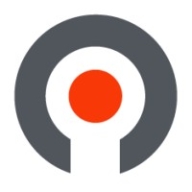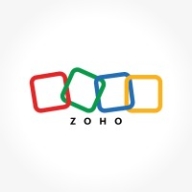

Zoho Flow and Declarative Webhooks are competitive products in the automation toolspace, each focusing on integration and webhook functionalities. Zoho Flow has an advantage in pricing and support, while Declarative Webhooks stands out for its feature-rich offerings.
Features: Zoho Flow offers diverse pre-built integrations, intuitive workflow automation, and a straightforward setup for common integrations. Declarative Webhooks provides comprehensive webhook management, customization flexibility, and detailed event handling with real-time monitoring.
Ease of Deployment and Customer Service: Zoho Flow is recognized for easy deployment and strong support, offering multi-channel assistance with extensive guidance. Declarative Webhooks, while focusing on strategic deployment flexibility, relies on thorough documentation and community support, providing ample resources for technical teams.
Pricing and ROI: Zoho Flow attracts users with competitive pricing and a notable return on investment due to lower initial costs. Declarative Webhooks, with a higher upfront investment, offers substantial value through superior integration capabilities, promising a strong return for organizations with advanced needs, attracting those seeking deep customization options.
Declarative Webhooks provide a streamlined approach to managing webhooks with minimal manual intervention. This innovation allows businesses to focus on leveraging existing data flows effectively.
Declarative Webhooks give developers a sophisticated tool to define and execute webhook integrations without extensive coding. By using a declarative approach, it reduces complexity in managing real-time communication and enhances system interoperability. This is ideal for fast-paced environments where real-time data exchange is essential. Simplifying integration tasks helps businesses minimize delays and operational overhead, ensuring a more seamless workflow and timely data processing.
What are the key features of Declarative Webhooks?In financial services, Declarative Webhooks facilitate secure and quick transaction processing, ensuring compliance with industry standards. Healthcare providers use it to exchange patient data securely in real time, supporting faster decision-making and improving patient outcomes. In e-commerce, it handles order processing and inventory updates efficiently, contributing to a better customer experience.
Zoho Flow is a powerful integration platform tailored for connecting diverse applications, automating workflows, and enhancing efficiency. It allows users to seamlessly integrate apps to streamline processes and improve operational productivity.
Zoho Flow serves as a comprehensive solution for businesses aiming to automate processes. By connecting different apps without the need for complex coding, it simplifies data transfer and operational tasks. The platform supports a vast range of apps, making integration straightforward. With its intuitive interface, businesses can set up workflows, reduce manual tasks, and minimize errors, thus optimizing overall performance.
What are Zoho Flow's most important features?Zoho Flow finds applications across industries like retail, healthcare, and finance, where it's used to automate order processing, patient data handling, and financial reporting. By reducing manual interventions, it helps industries maintain accuracy and efficiency. Its versatility in configurations ensures it adapts to specific industry requirements, fostering growth and innovation.
We monitor all Cloud Data Integration reviews to prevent fraudulent reviews and keep review quality high. We do not post reviews by company employees or direct competitors. We validate each review for authenticity via cross-reference with LinkedIn, and personal follow-up with the reviewer when necessary.